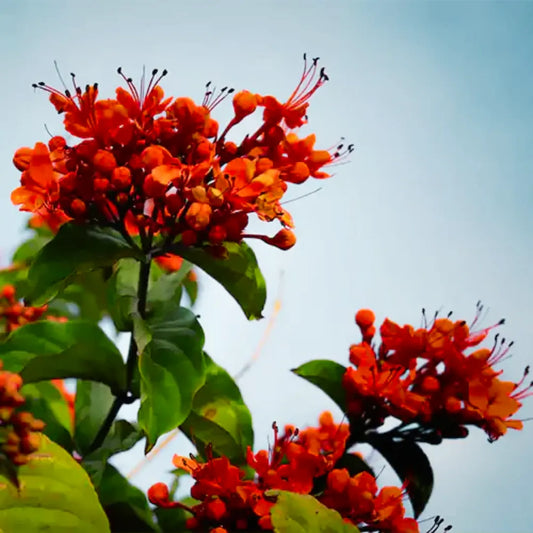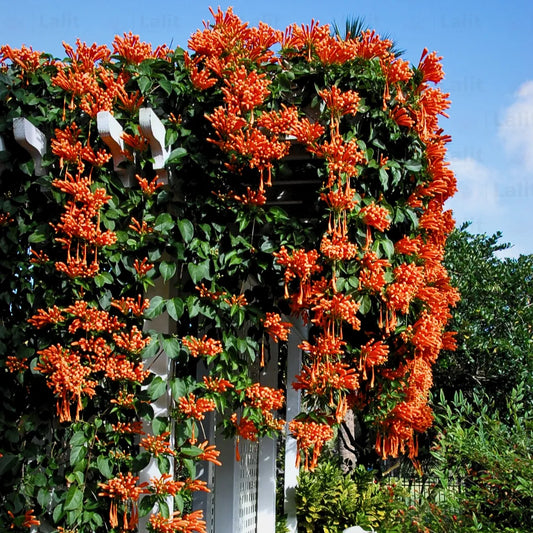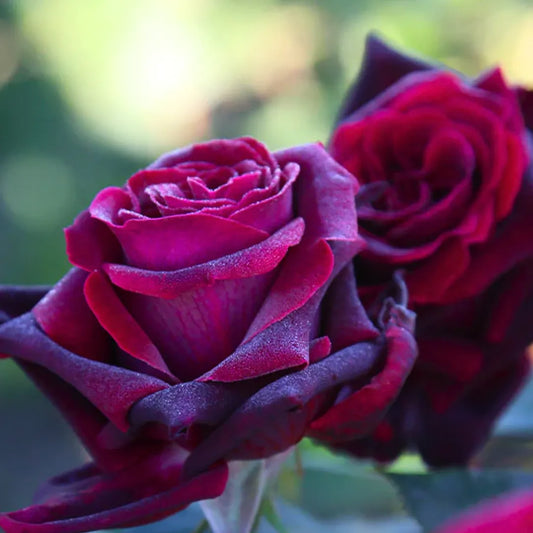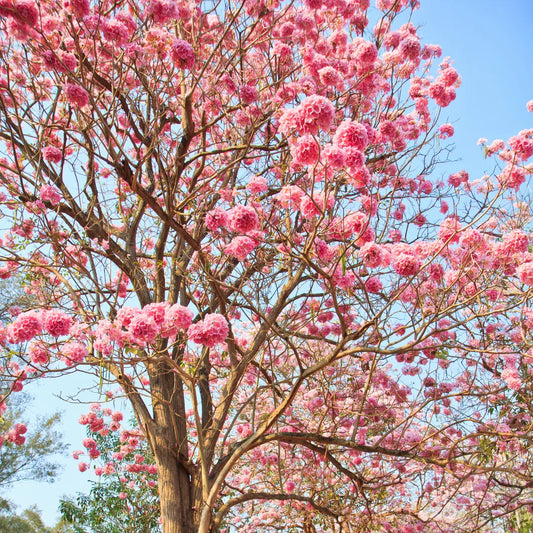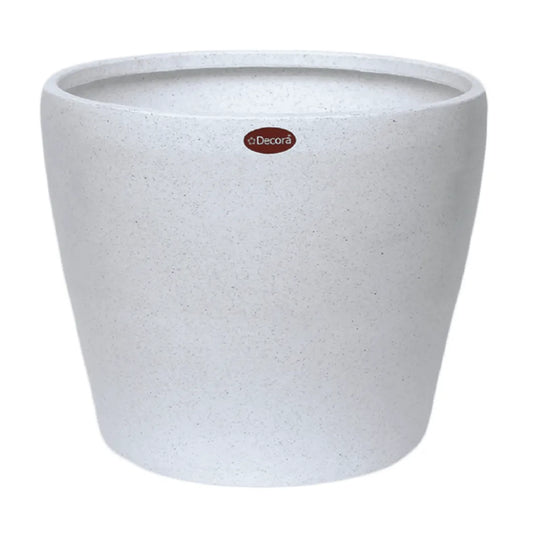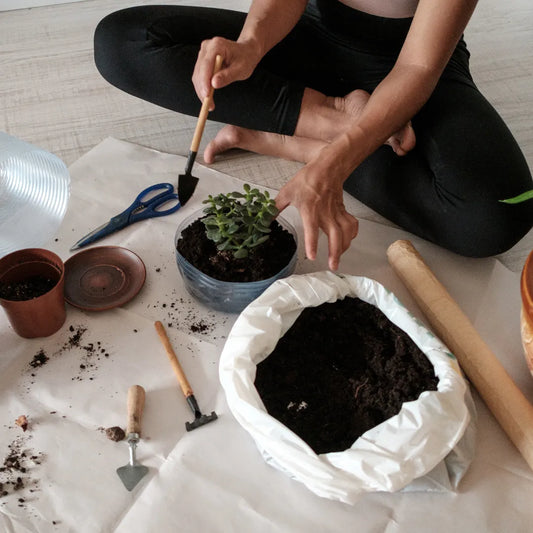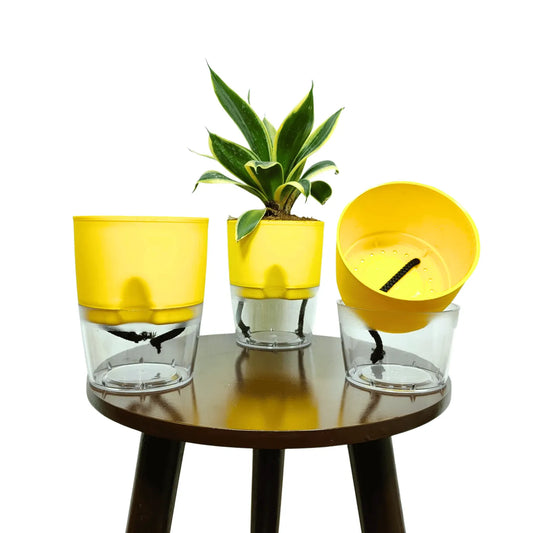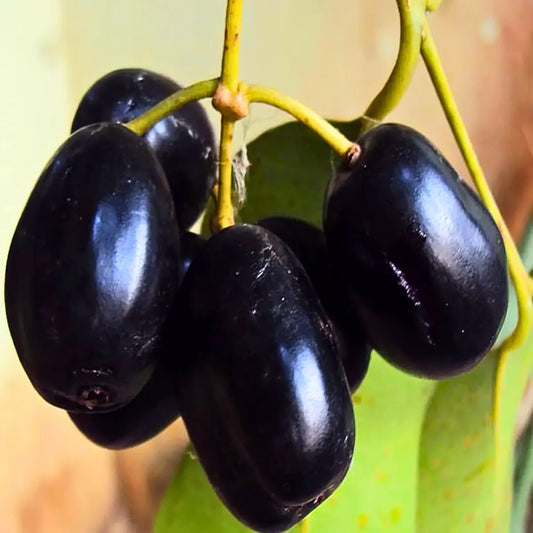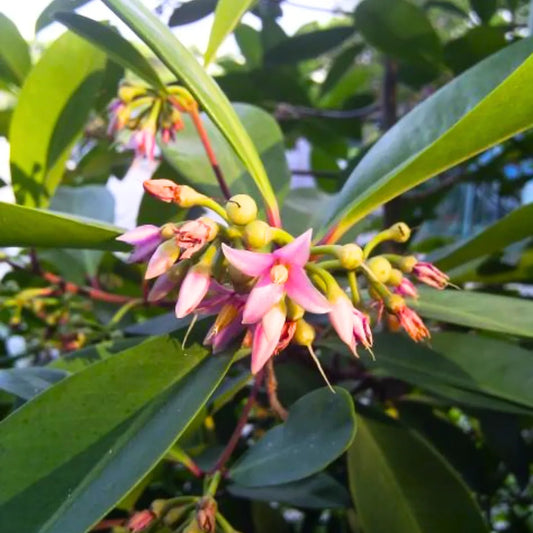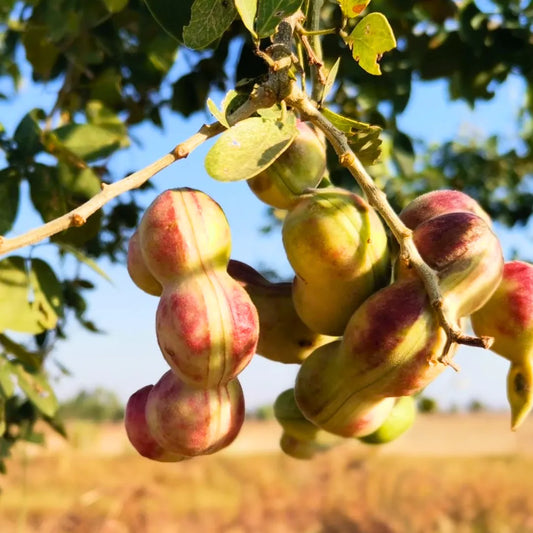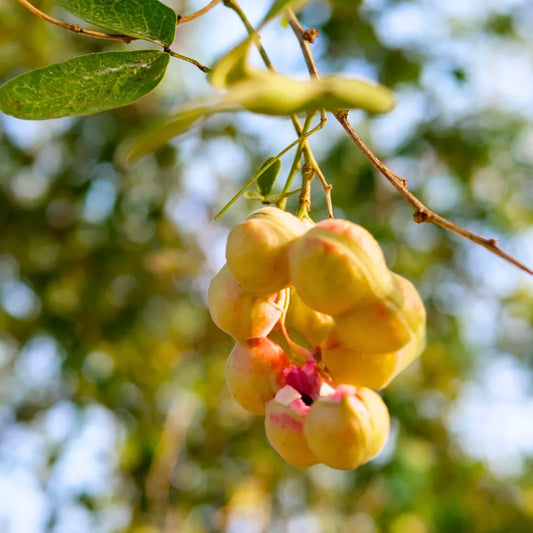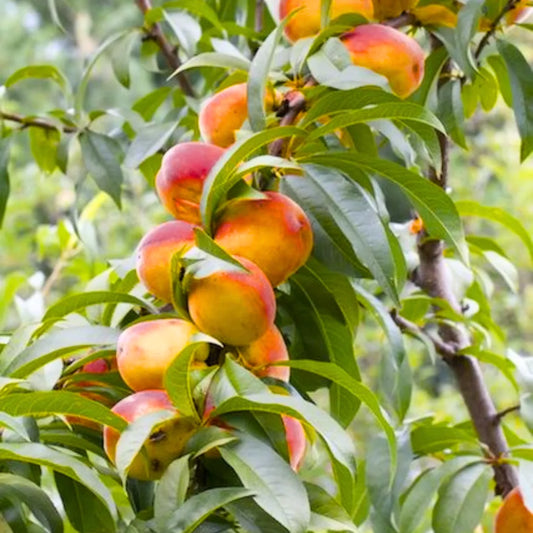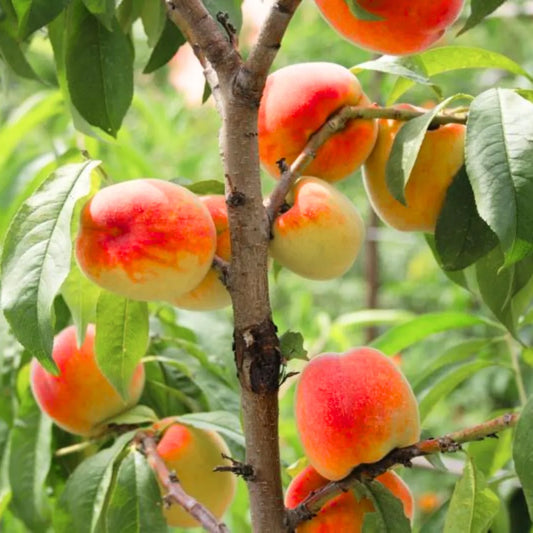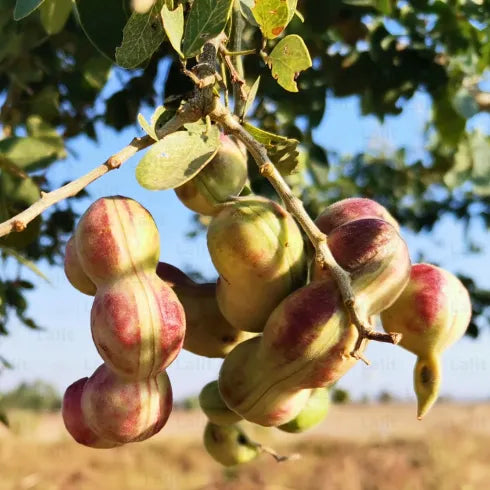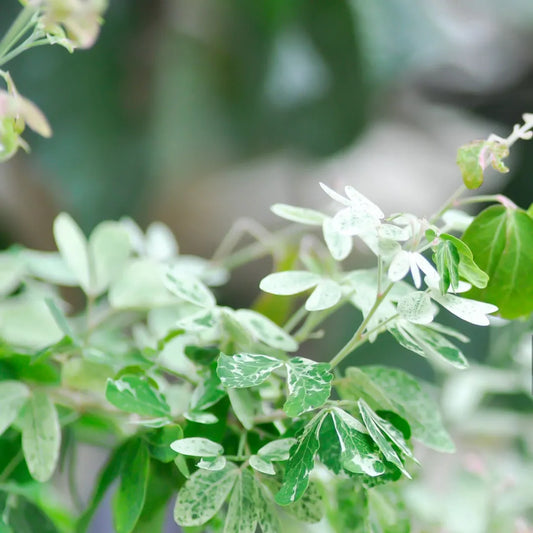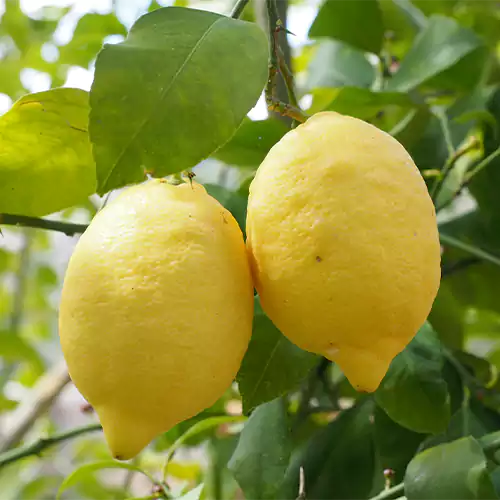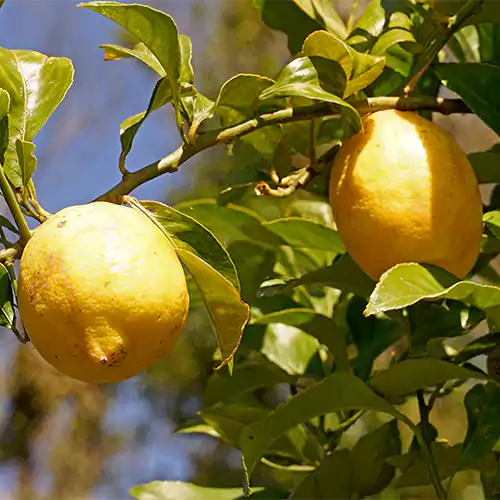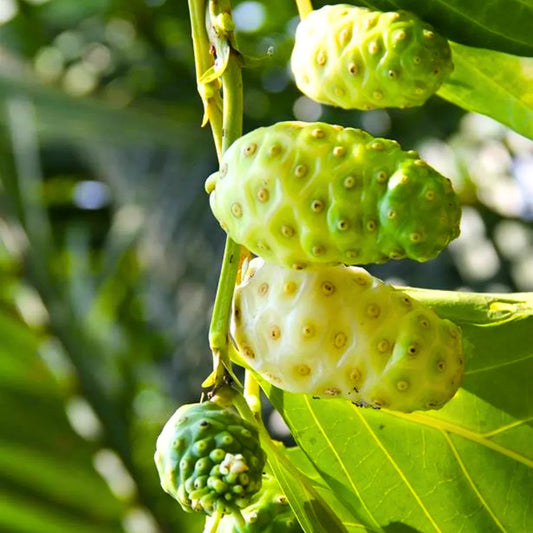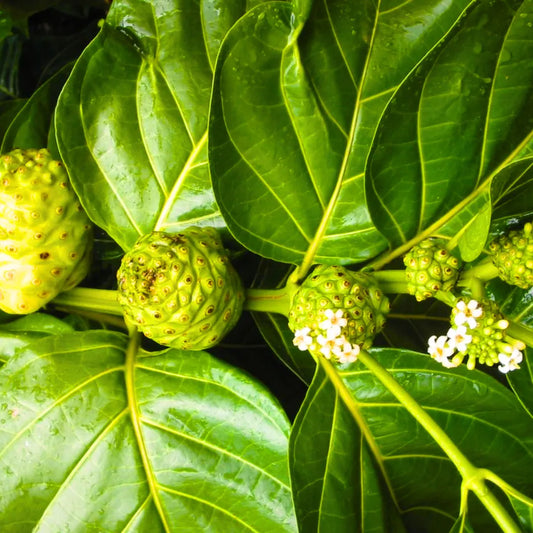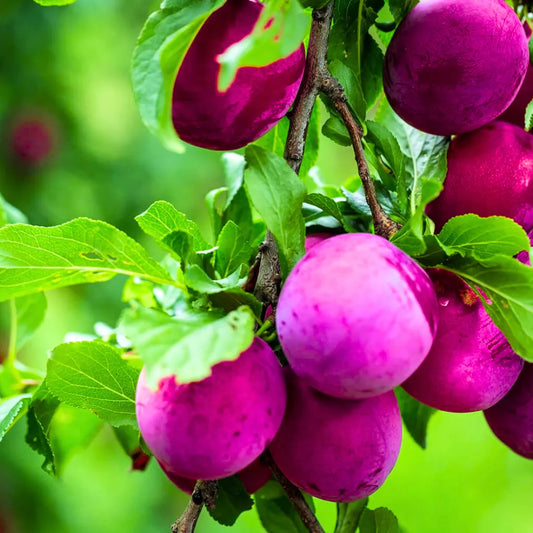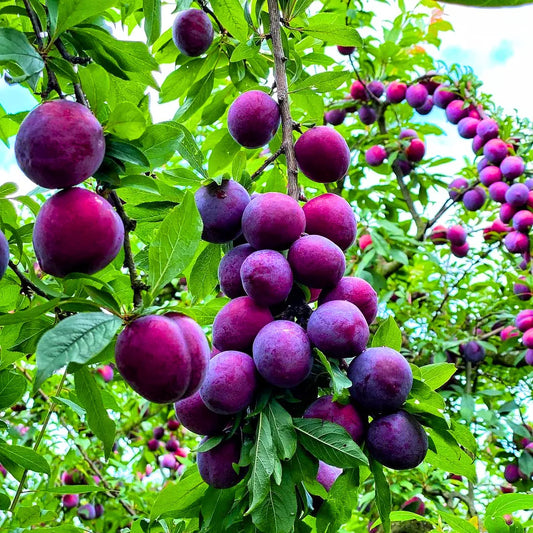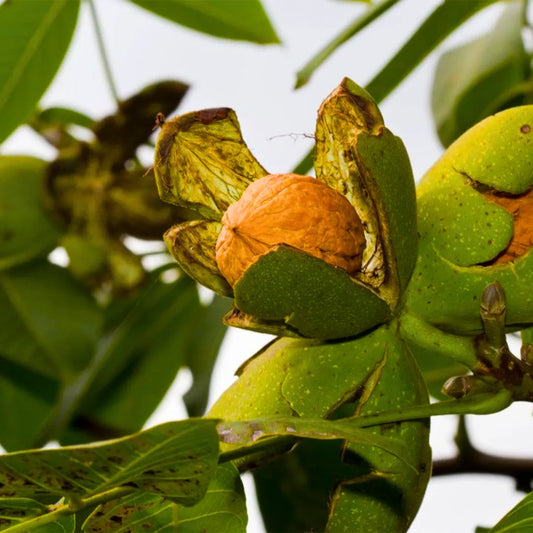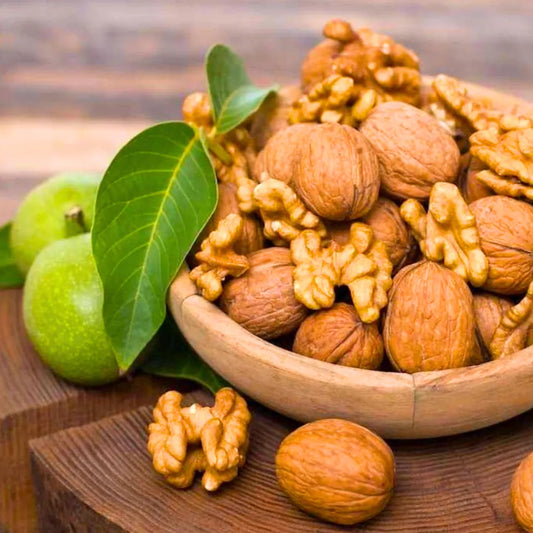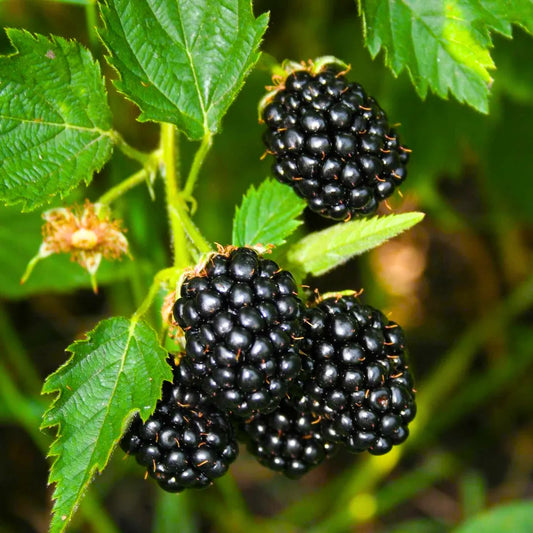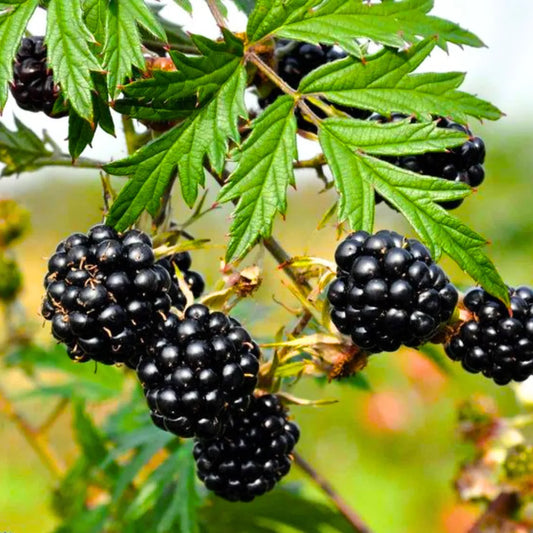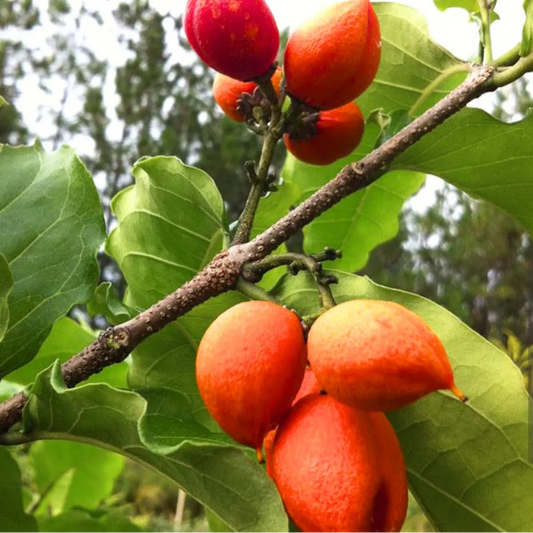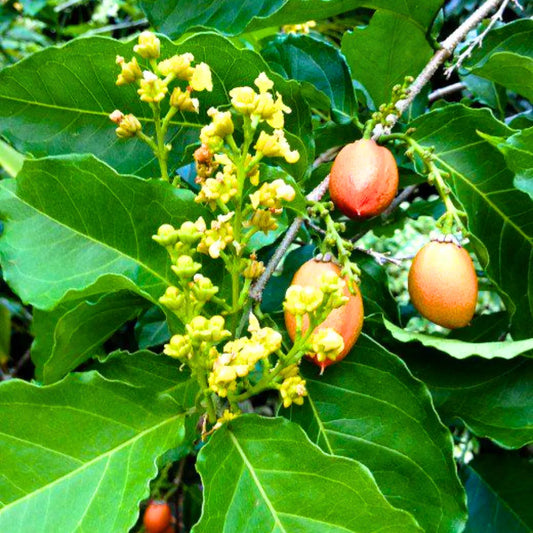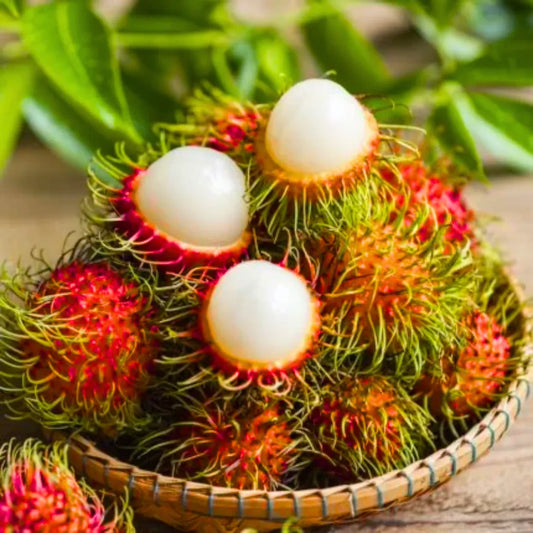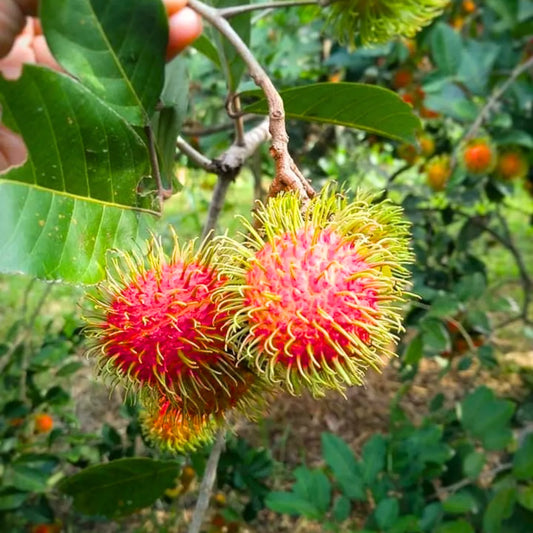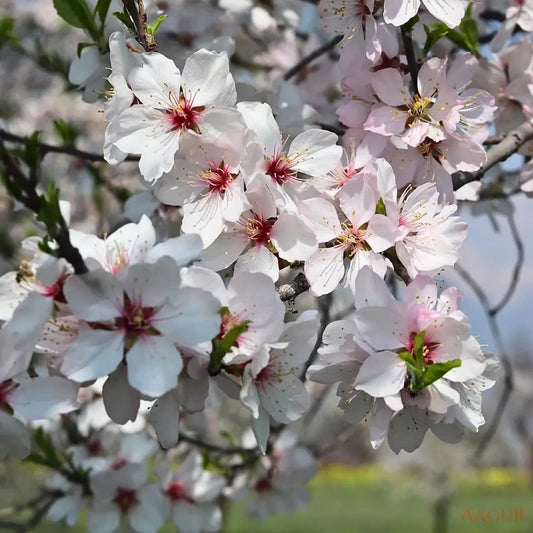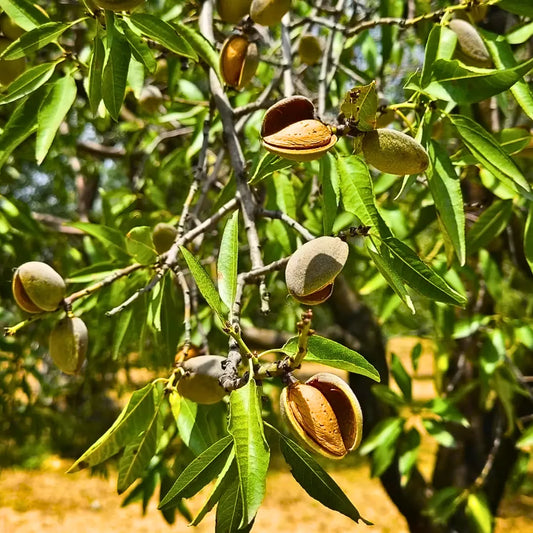Tabebuia Rosea (Rosy Trumpet Tree) "Pink Poui" - Plant
Tabebuia Rosea (Rosy Trumpet Tree) "Pink Poui" - Plant
Tabebuia Rosea
Couldn't load pickup availability
Share this product
Note: Plants may slightly differ from shown images depending on Season and growth pattern
Questions? Speak with our Experts: 797-436-5167
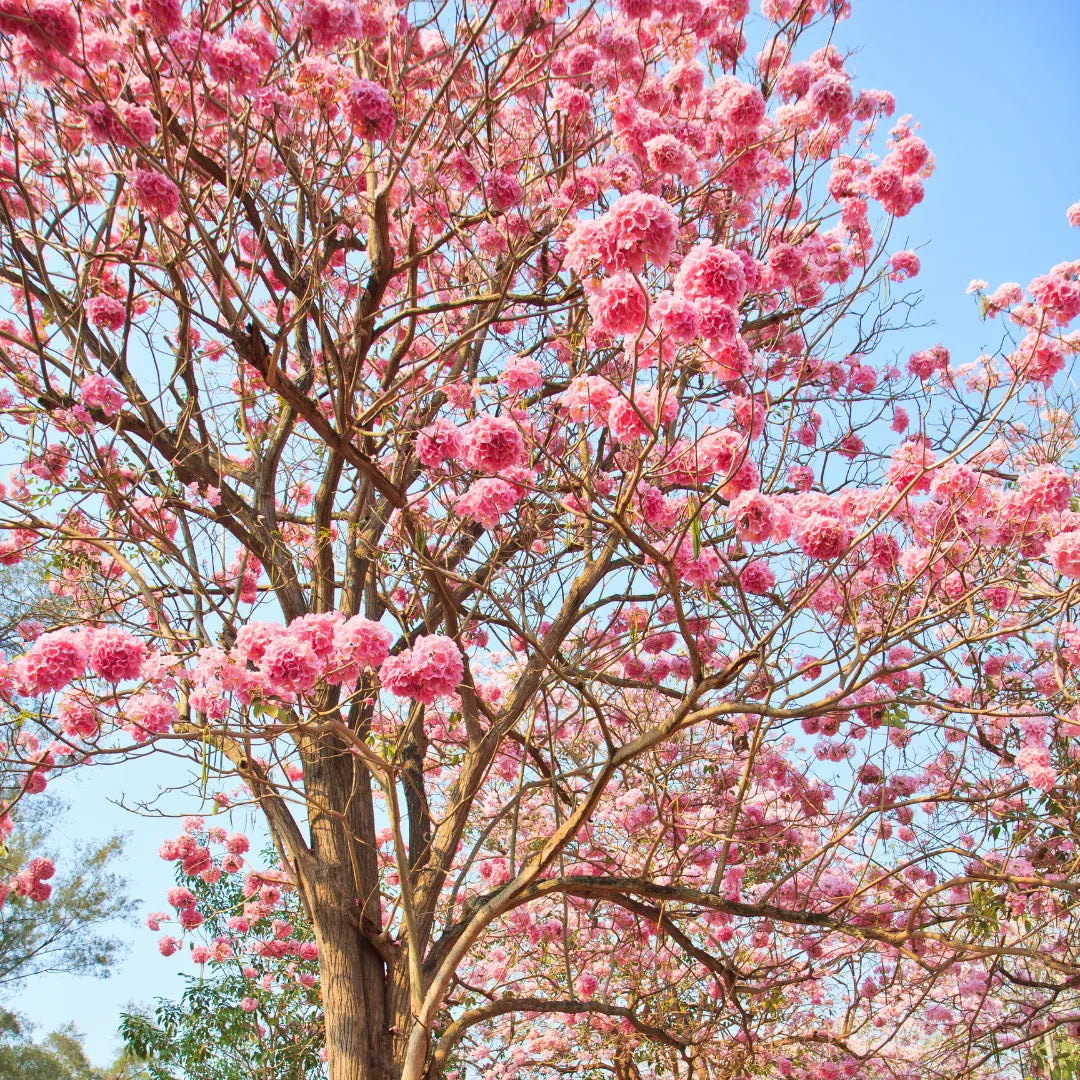
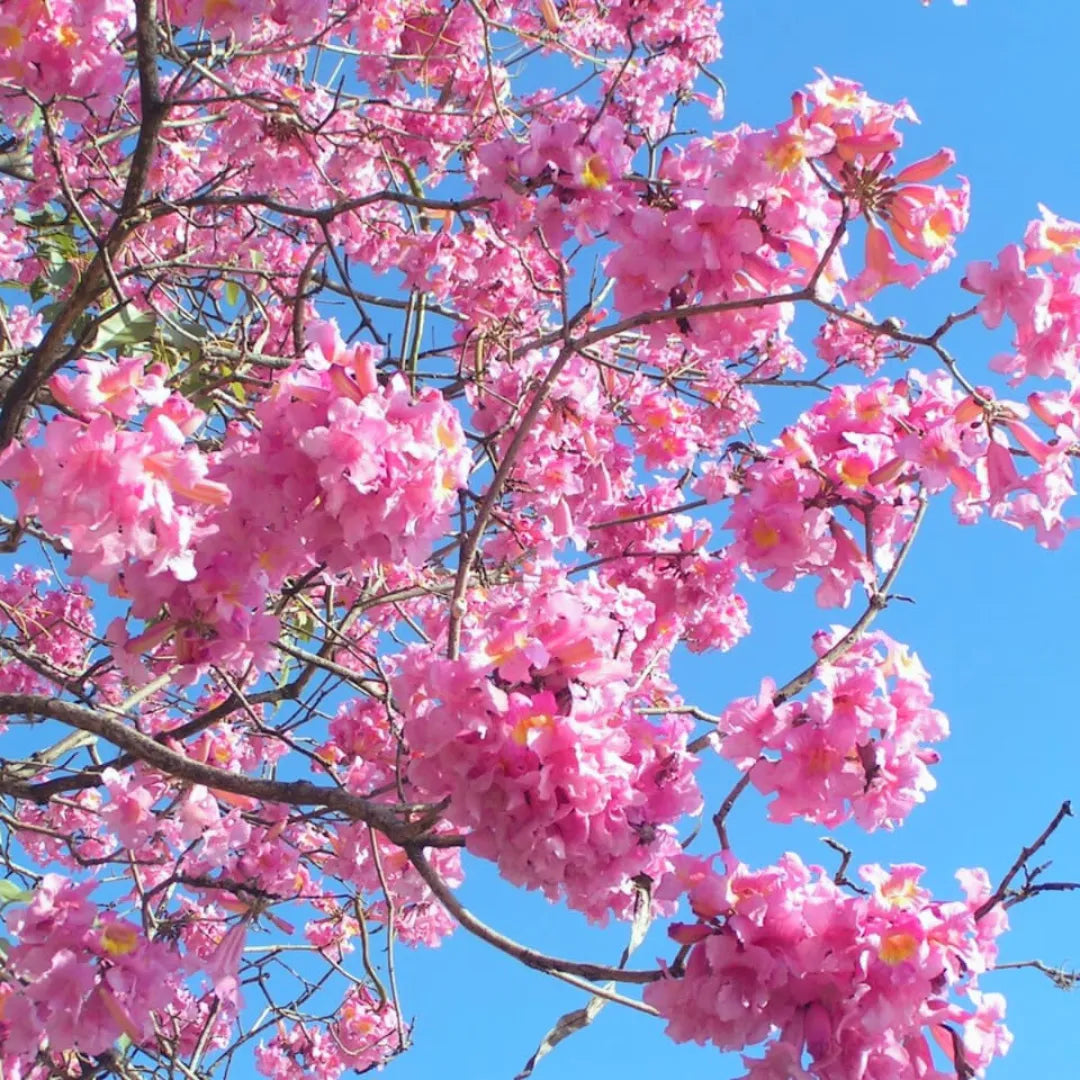

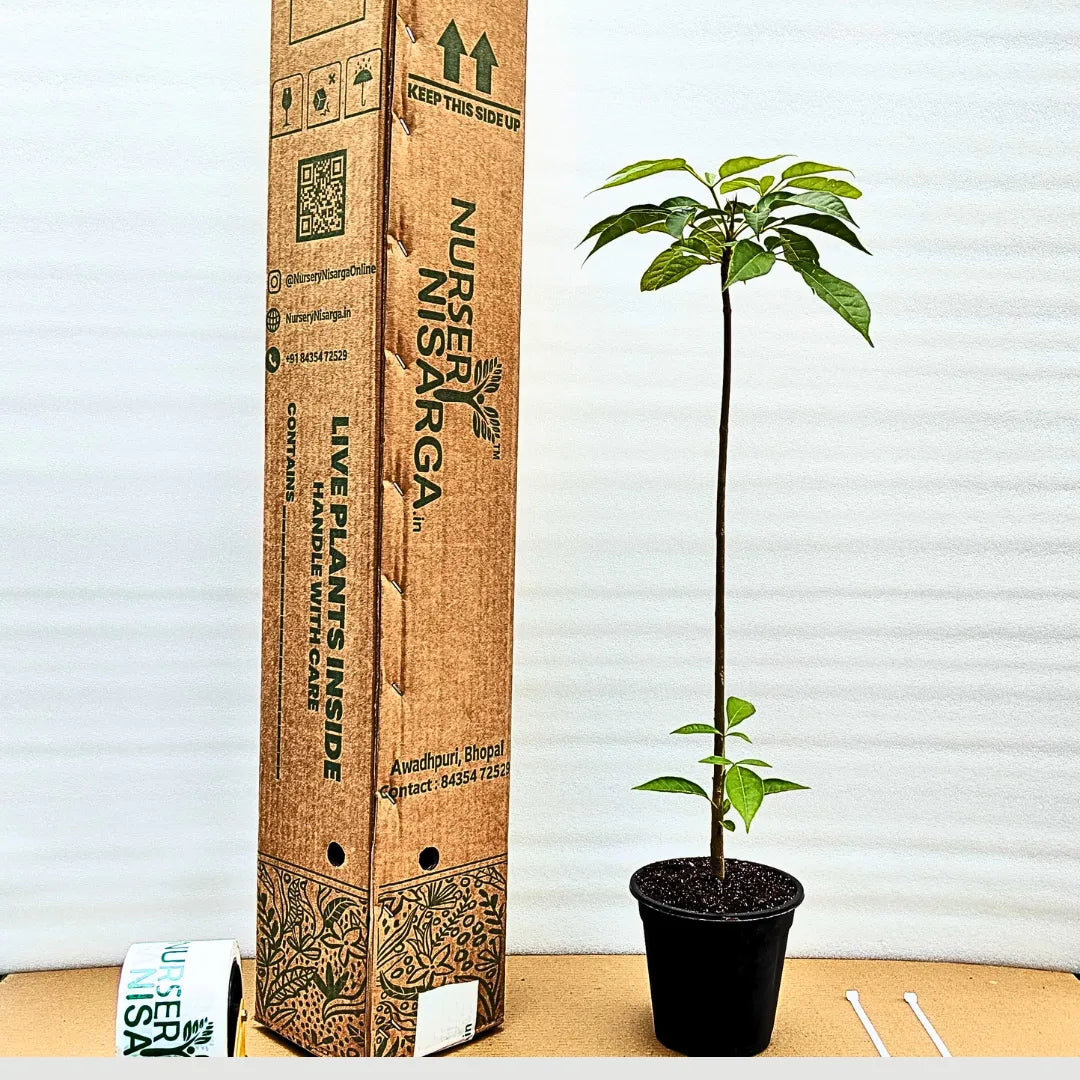
Tabebuia Rosea (Rosy Trumpet Tree) "Pink Poui" - Plant
Tabebuia Rosea, commonly known as the Pink Trumpet Tree. It is a species of flowering tree native to Central and South America. It belongs to the family Bignoniaceae, which includes several other species of flowering trees and shrubs.
The Pink Trumpet Tree is named for its showy, trumpet-shaped flowers that range in color from pale pink to deep magenta. The flowers typically bloom in the early spring, and are followed by the growth of the tree's leaves. The leaves are compound and have a glossy, dark green appearance.
The Pink Trumpet Tree is often cultivated as an ornamental tree in tropical and subtropical regions. It prefers full sunlight and well-drained soil, and can grow up to 40 feet tall with a spread of 30 feet. The tree is also valued for its durability and resistance to pests and diseases.
In addition to its ornamental value, Tabebuia Rosea has a long history of medicinal use in traditional herbal medicine. Its bark is believed to have anti-inflammatory and analgesic properties, and has been used to treat a variety of ailments including arthritis, fever, and respiratory infections.
Overall, Tabebuia Rosea is a beautiful and versatile tree that has both aesthetic and medicinal value.
Growing Requirements
Growing Requirements
Sunlight for Tabebuia Rosea Plant
Your Tabebuia Rosea Plant thrives best in full sunlight, requiring at least 6–8 hours of direct sun daily to support healthy growth, lush foliage, and abundant flowering.
Watering
Your Tabebuia Rosea Plant prefers moderate watering, keeping the soil moist but well-drained; water deeply during dry spells and reduce frequency once the tree is established.
Fertilizing for Tabebuia Rosea Plant
Your Tabebuia Rosea Plant benefits from balanced fertilizer application during the growing season, preferably a slow-release or organic fertilizer, to encourage strong growth and vibrant flowering.
Planting and Care
Planting and Care
Container
Your Tabebuia Rosea Plant can be grown in a large, sturdy container with good drainage, especially when young, but it thrives best when transplanted into the ground as it matures.
Pruning
Pruning for your Tabebuia Rosea Plant should be done lightly after flowering to remove dead or weak branches and to shape the canopy for healthy growth.
Propagation
Your Tabebuia Rosea Plant is commonly propagated through seeds or semi-hardwood cuttings, with seeds being the easiest and most reliable method for growth.
Repotting
Repotting for your Tabebuia Rosea Plant is needed when the young plant outgrows its container, usually every 1–2 years, ensuring fresh soil and ample space for root expansion.
Common Pest
Common pests for your Tabebuia Rosea Plant include aphids, scales, and caterpillars, which may affect leaves and flowers, but can be controlled with neem oil or organic insecticides.
Dimensions
Dimensions
Live Plant along with a Plastic Pot.
Plant height is 12"-18" inches in Medium size Pot.
Plant height is 24"-36" inches in Large size Pot.
Plant height is 48"-56" inches, mature in Extra Large size Pot.
Plant height is 72"-84" inches, on flowering stage in XXXL 16 inch Pot.
Easy maintenance, outdoor, flowering plant Useful for gardens & landscapes.
Shipping Details
Shipping Details
In General our team requires 1-2 Days for Processing the Plants and further 3-4 days for it to reach your Home Safely
Our team makes sure to selects only the healthiest, happiest plants for you. We pack them with extra love and care, making sure they have everything they need for a safe and comfortable journey to your doorstep.
We deliver quickly and safely across the country, so your new plant arrives fresh and ready to thrive.
Questions? Speak with our Experts: 797-436-5167
On Bloom This Season
-
Clerodendrum Splendens "Flaming Glorybower" - Plant
No reviewsRegular price From Rs. 449.00Regular priceUnit price / perRs. 700.00Sale price From Rs. 449.00Sale -
Trumpet Vine (Pyrotegia Venusta) - Plant
No reviewsRegular price From Rs. 349.00Regular priceUnit price / perRs. 500.00Sale price From Rs. 349.00Sale -
Jacaranda Mimosifolia "Neel Mohar" - Plant
No reviewsRegular price From Rs. 549.00Regular priceUnit price / perRs. 750.00Sale price From Rs. 549.00Sale -
Black Lady Rose - Plant
No reviewsRegular price From Rs. 599.00Regular priceUnit price / perRs. 800.00Sale price From Rs. 599.00Sale -
Tabebuia Rosea (Rosy Trumpet Tree) "Pink Poui" - Plant
2 reviewsRegular price From Rs. 549.00Regular priceUnit price / perRs. 750.00Sale price From Rs. 549.00Sale
Gardening Add-Ons
-
Decora Pots (Premium Quality) " Gleyz vertical”- “Code – GV”
No reviewsRegular price From Rs. 873.00Regular priceUnit price / per -
Vermicompost- Nutrient Rich Soil Mix (1KG)
No reviewsRegular price Rs. 99.00Regular priceUnit price / per -
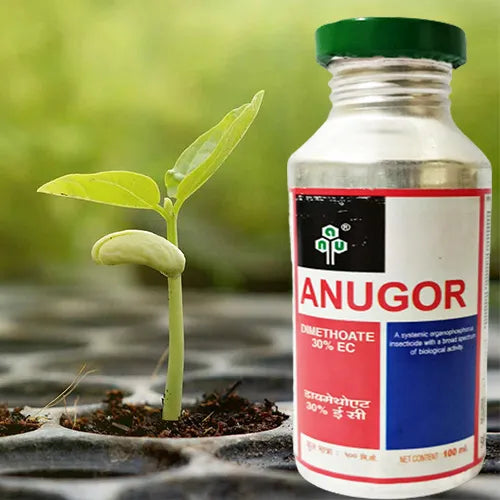 Sold out
Sold outInsecticide | Anugor Insecticide
No reviewsRegular price Rs. 165.00Regular priceUnit price / per -
Cocoliner Supporting Poles (Coir Poles)
No reviewsRegular price Rs. 150.00Regular priceUnit price / perRs. 199.00Sale price Rs. 150.00Sale -
LOBELLO Premium Quality self watering pot
No reviewsRegular price From Rs. 99.00Regular priceUnit price / per
Best Selling Fruit Plants
-
Thai KG 10 Jamun (Syzygium Cumini) - Plant
No reviewsRegular price Rs. 1,449.00Regular priceUnit price / perRs. 1,950.00Sale price Rs. 1,449.00Sale -
Ardisia Elliptica (Duck's eye, Coralberry) - Plant
No reviewsRegular price Rs. 1,249.00Regular priceUnit price / perRs. 1,700.00Sale price Rs. 1,249.00Sale -
Jungle Jalebi "Thornless" (Pithecellobium Dulce) - Plant
No reviewsRegular price Rs. 1,399.00Regular priceUnit price / perRs. 1,850.00Sale price Rs. 1,399.00Sale -
Grafted Peach (Prunus Persica) Aadu – Plant
No reviewsRegular price Rs. 1,449.00Regular priceUnit price / perRs. 2,100.00Sale price Rs. 1,449.00Sale -
Jungle Jalebi white (Pithecellobium Dulce) Manila Tamarind - Plant
No reviewsRegular price Rs. 749.00Regular priceUnit price / perRs. 1,000.00Sale price Rs. 749.00Sale -
Kaagazi Nimboo, Lemon – Plant
No reviewsRegular price From Rs. 499.00Regular priceUnit price / perRs. 750.00Sale price From Rs. 499.00Sale -
Noni (Morinda Citrifolia) - Plant
No reviewsRegular price Rs. 1,399.00Regular priceUnit price / perRs. 2,100.00Sale price Rs. 1,399.00Sale -
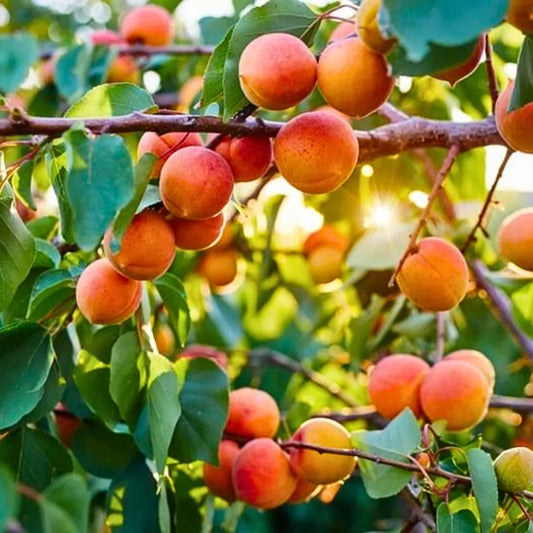
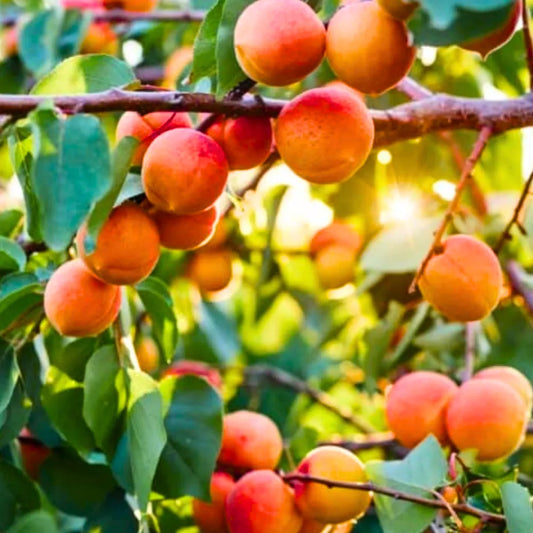 Sold out
Sold outApricot (Prunus Armeniaca) - Plant
No reviewsRegular price Rs. 1,399.00Regular priceUnit price / perRs. 2,100.00Sale price Rs. 1,399.00Sold out -
Plum (Prunus Domestica) Aloo Bukhara - Plant
No reviewsRegular price From Rs. 599.00Regular priceUnit price / perRs. 800.00Sale price From Rs. 599.00Sale -
Walnut (Juglans Regia) - Plant
No reviewsRegular price Rs. 649.00Regular priceUnit price / perRs. 900.00Sale price Rs. 649.00Sale -
Blackberry (Rubus Fruticosus) - Plant
No reviewsRegular price Rs. 1,499.00Regular priceUnit price / perRs. 2,000.00Sale price Rs. 1,499.00Sale -
Peanut Butter (Bunchosia Glandulifera) - Plant
No reviewsRegular price From Rs. 649.00Regular priceUnit price / perRs. 850.00Sale price From Rs. 649.00Sale -
Rambutan N18 (Nephelium Lappaceum) - Plant
No reviewsRegular price Rs. 1,149.00Regular priceUnit price / perRs. 1,700.00Sale price Rs. 1,149.00Sale -
Kashmiri Almond (Badam) - Plant
No reviewsRegular price From Rs. 749.00Regular priceUnit price / perRs. 1,000.00Sale price From Rs. 749.00Sale
Nice packaging and healthy plants has delivered I am so very happy with this purchase, looking for more,best of luck
.
Let customers speak for us
from 74 reviewsI have received the plant as shown and mentioned in website. Packaging was excellent. I request the team to keep same momentum and quality. I will buy again. Thank you for making me happy.
Nice packing good plant
The plant, a creeper Thunbergia grandiflora alba white received in excellent condition. The plant looks healthy and hope it grows well. The size was small but already had flowering buds. Keep up the good work.
The packaging of the plant was excellent. The plant was healthy. I wish it grows well in our garden and bloom well. Keep up the good work.
this is my second purchase from Lalit ent. From Bhopal to Mumbai. Nice timely delivery. Healthy plant. Both desi hibiscus and Rama Tulsi healthy plants
Packaging 5 Stars
Delivery time 4 Stars.
Plant quality - Healthy
Plant size - As expected
Shipped through Nursery Nisarga via Delhivery
Plant arrived healthy and in excellent packaging. Best packaging I've seen from any online nursery. Thanks nursery Nursery Nisarga
The plant was very fresh and neatly packed. The delivery was quicker than I expected and very pleased with it. Doesn’t have any flowers yet but I’m very sure it’ll bloom some wonderful flowers as time progresses.
Good packing
I recently purchased Kalpvriksha plant from Lalit Enterprise, it delivered in very good condition
Nice packaging. thanks
My alocasia has been an absolute delight... While the first few leaves started to turn yellow initially, I kept caring for the plant as recommended, and to my joy, it began to thrive beautifully. Now it graces my home with lush, vibrant foliage and adds a tropical charm that’s simply unmatched. It's a resilient and rewarding plant that truly transforms with the right care. Highly recommended...
Its beautifully variegated foliage, with shades of green and creamy yellow, adds a touch of sophistication to any space. The plant I received was well-packaged, healthy, and ready to thrive. It has quickly become the centerpiece of my indoor garden. Caring for it is simple, making it a great choice for both beginners and seasoned plant enthusiasts. If you're seeking a plant that's equal parts stylish and low-maintenance, this one's a winner....
The plant arrived in perfect condition, and its furry, rabbit like rhizomes are such a delight….. truly unique and charming. It's a breeze to care for, needing just the right amount of indirect light and moisture to thrive. The lush, vibrant green leaves have added a touch of natural elegance to my space, and it's quickly become a favorite in my plant collection. Lalit Enterprises provided top-notch service with fast delivery and excellent packaging. Highly recommend both the Rabbit Foot Fern and Lalit Enterprises to anyone looking to add a stunning plant to their home....
Plants are too awesome and healthy condition plants I will place more orders in future






